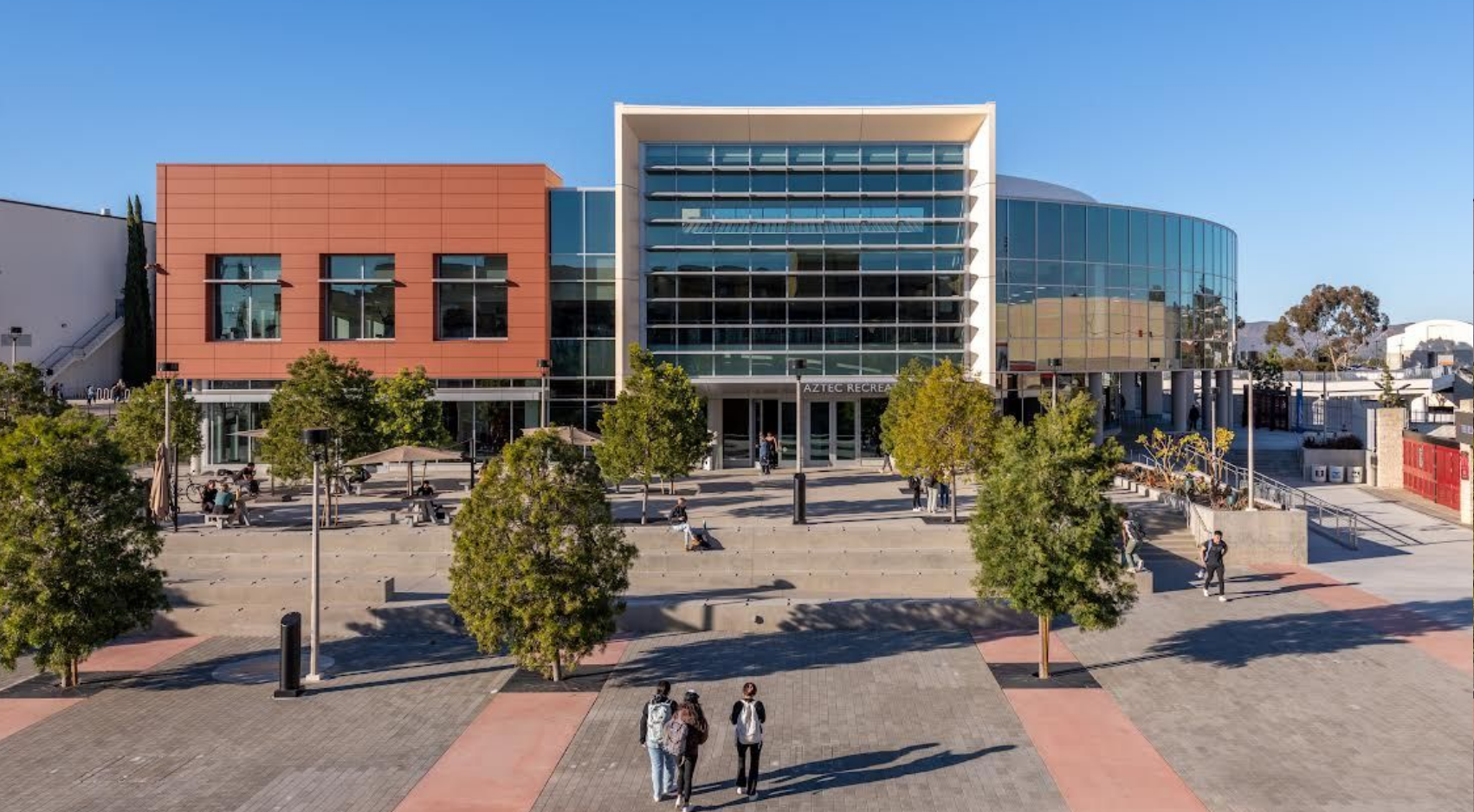Aztec Recreation Center Achieves Top Sustainability Certification
With reclaimed HVAC condensate and no fossil fuels, the building is a model of green awareness and responsibility.

Designed with a variety of sustainability features to conserve water and function with green energy, the expansion and renovation of San Diego State University’s Aztec Recreation Center (ARC) has received LEED Platinum status for New Construction.
The first phase of the project, the expansion, began in spring 2020 and was completed in fall 2021. The renovation portion of the project was completed last summer.
A proposed fee to expand and renovate the Associated Students-managed facility was approved in a spring 2018 referendum. Throughout each step of the project, students were heavily involved in decision-making to not only meet current and future recreation needs but to ensure the building met the highest sustainability standards.
“Associated Students is a student-led organization — not only on paper but genuinely in practice,” said A.S. Sustainability Coordinator Charlotte Roberts. “Therefore, throughout the entirety of this project, students worked closely with SDSU Planning, Design and Construction as well as the architect, contractor and LEED consultant teams to ensure sustainability principles were incorporated into every aspect of the building.”
Sustainable elements include collection tanks underneath the ARC courtyard to store up to 200,000 gallons of both rainwater and HVAC condensate that are used for low-flow toilets as well as outdoor drip irrigation. The project also diverted 87% of construction waste from the landfill and recycled it for new purposes, significantly higher than the City of San Diego minimum requirement of a 65% diversion.
Associate Executive Director and Aztec Recreation Director Mark Zakrzewski is particularly proud of the ARC’s fully electric operations.
“There are no fossil fuels in the building — it’s a gas-free, all-electric building,” Zakrzewski said. “That is the future of building. It’s exciting to say we were able to deliver to students and be on the front edge of that type of construction.”
To power the building, the ARC’s electricity is generated onsite by a 375 kW rooftop solar system with no fossil fuels such as natural gas used.
The U.S. Green Building Council identifies the LEED rating system as the most widely used green building rating system in the world and “a globally recognized symbol of sustainability achievement, and it is backed by an entire industry of committed organizations and individuals paving the way for market transformation.”
To achieve LEED certification, projects earn points by adhering to certain guidelines for areas such as carbon, energy, water, waste and materials. Only 3.7% of all LEED New Construction buildings in the world are certified at the platinum level of 80 points or more, with the ARC receiving 90 points.
“I’m very proud of this since having the ARC LEED Platinum certified was one of the main priorities of the students,” said A.S. Recreation and Wellness Commissioner Lauren Samidi. “Because this building is going to be on our campus forever, we needed to make sure it was good for the environment while also good for our students. A big part of staying healthy is also staying sustainable.”
The ARC boasts 134,000 sq. ft. of space to meet the current and future recreation, fitness and wellness needs of SDSU students. The space includes an indoor running track, six multi-use courts, five group fitness studios, a 41-foot climbing wall and 25,000 sq. ft. of weight and cardio equipment space.
The ARC is now working towards a LEED Platinum for Existing Buildings Operations and Maintenance to achieve LEED Double Platinum status, the highest title for all green buildings. To achieve a double status, the building must be in operation for over one year. The Conrad Prebys Aztec Student Union achieved this status in 2017.
“The future is sustainability,” said A.S. Sustainability Commissioner Lily Eckoff. “Having this sustainable building makes the building that much more special because you know you’re not only contributing to the health and well-being of our student population but also the health and well-being of our San Diego community and world.”



